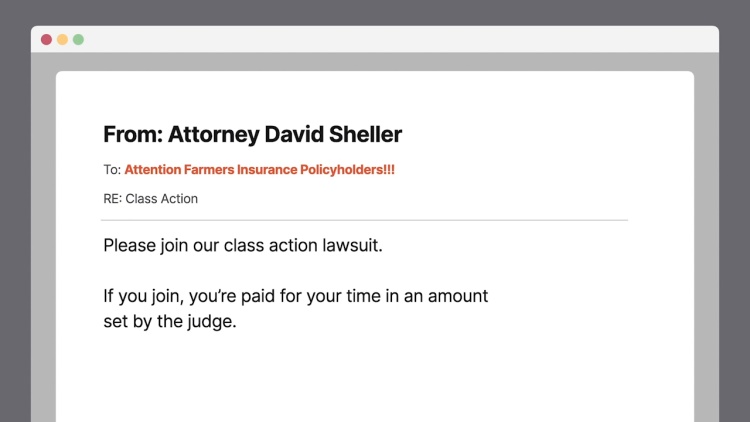Sheller v. Superior Court
California Court of Appeal
71 Cal. Rptr.3d 207, 158 Cal.App.4th 1697 (2008)
- Written by Samantha Arena, JD
Facts
Texas attorney David Sheller (defendant) filed to appear pro hac vice on behalf of the named plaintiff, Pauline Fairbanks, in a class action against Farmers New World Life Insurance Company (Farmers) (plaintiff). Sheller sent a flyer to 350 Farmers policyholders, looking for additional class members. The flyer stated, “if accepted [as a class representative], you are paid for your time in an amount set by the judge.” Farmers filed an ex parte motion attempting to prevent Sheller from sending further communications, claiming the flyer violated the California Rules of Professional Conduct. The court concluded that the statement regarding payment was inappropriate because often, class members not only do not recover, but are liable for court costs. The court found that Sheller intentionally misled potential class members, and issued an order to show cause why Sheller’s pro hac vice status should not be revoked because of his ethical violation. The trial court concluded that Sheller’s behavior was unethical but declined to revoke Sheller’s status. The court reprimanded Sheller and ordered him to reimburse Farmers for attorneys’ fees. Sheller appealed, contending that the court lacked authority to order him to pay attorneys’ fees, formally reprimand him, and revoke his pro hac vice status.
Rule of Law
Issue
Holding and Reasoning (Croskey, J.)
What to do next…
Here's why 907,000 law students have relied on our case briefs:
- Written by law professors and practitioners, not other law students. 47,100 briefs, keyed to 996 casebooks. Top-notch customer support.
- The right amount of information, includes the facts, issues, rule of law, holding and reasoning, and any concurrences and dissents.
- Access in your classes, works on your mobile and tablet. Massive library of related video lessons and high quality multiple-choice questions.
- Easy to use, uniform format for every case brief. Written in plain English, not in legalese. Our briefs summarize and simplify; they don’t just repeat the court’s language.





